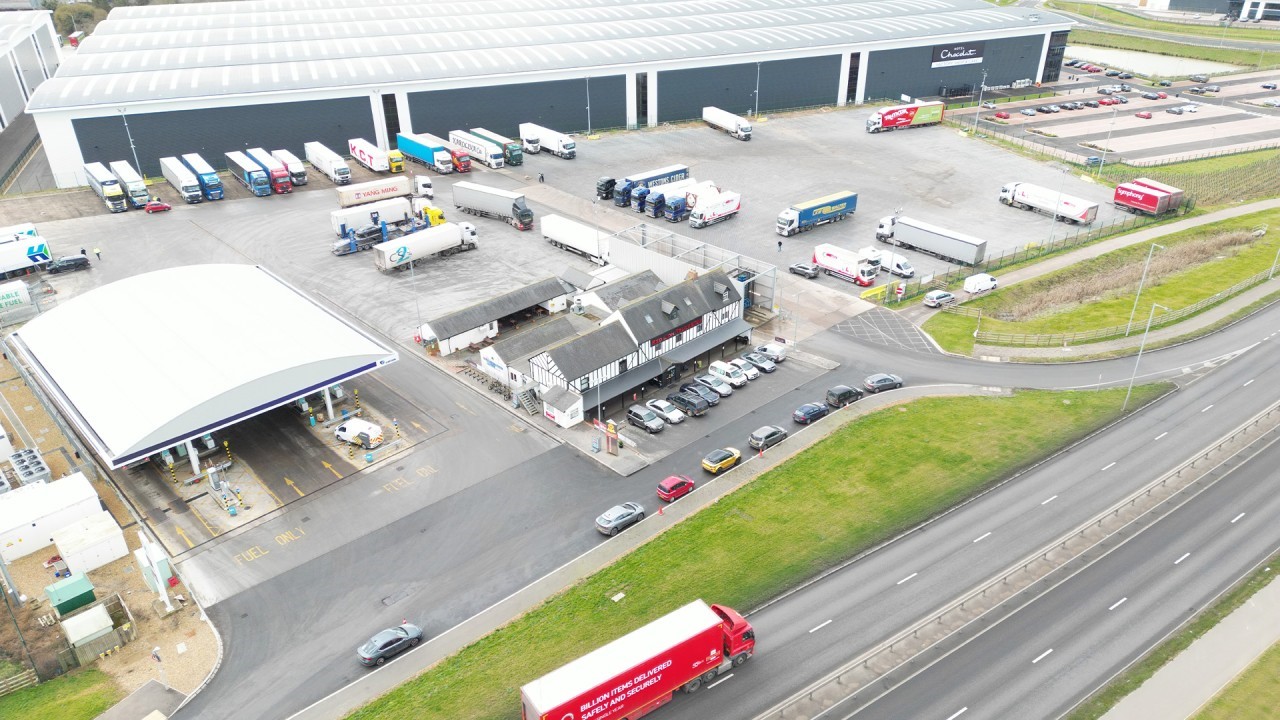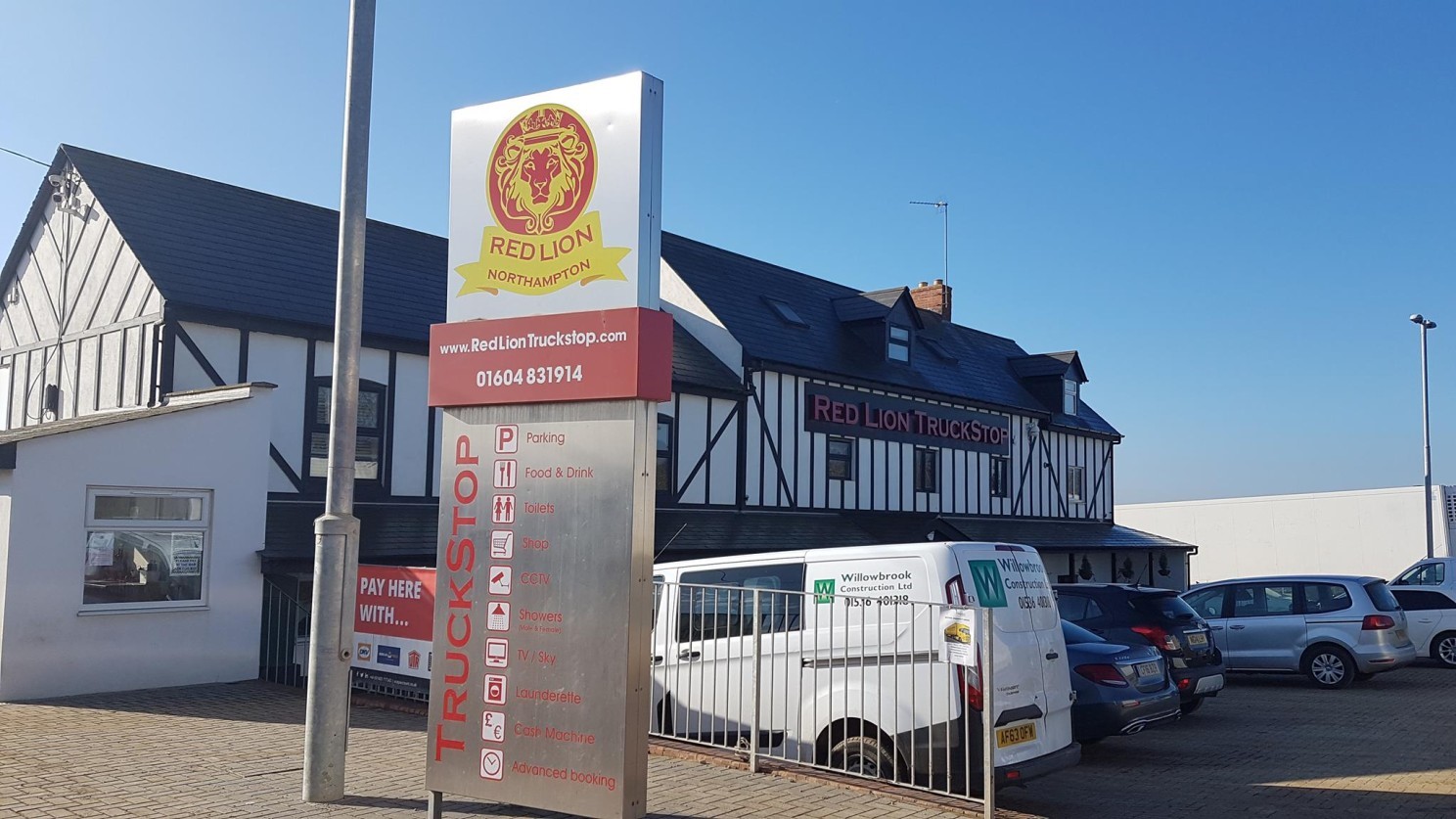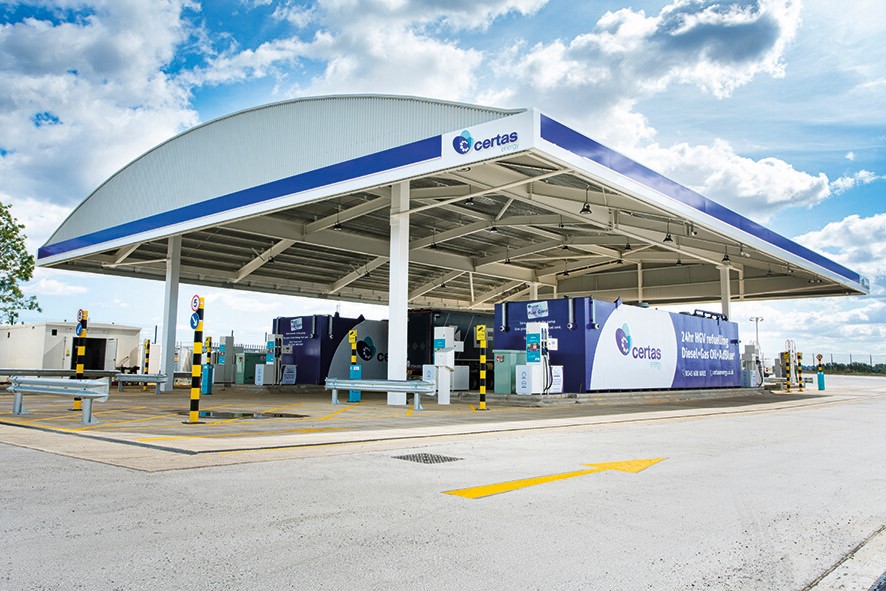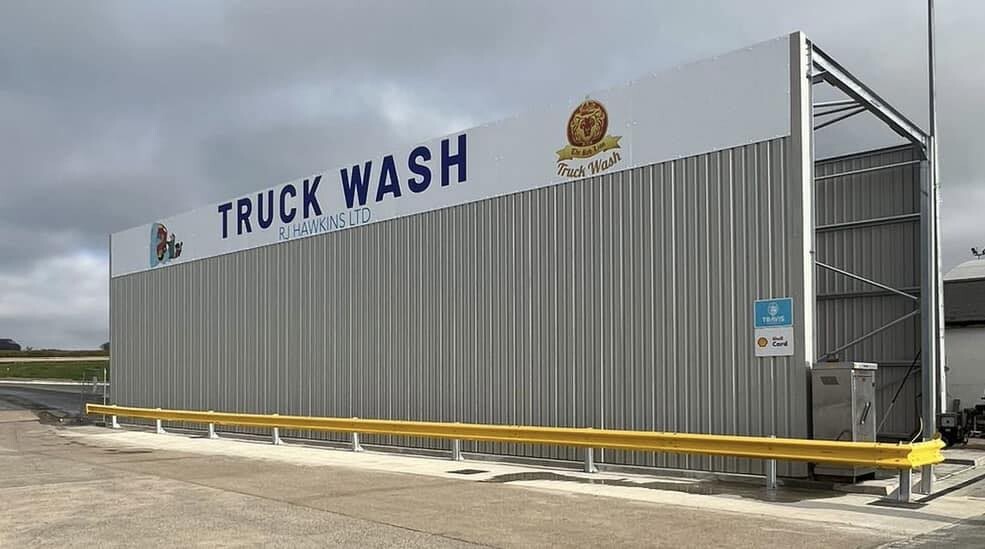
Susie Jones
Спирката за камиони Red Lion - модел за успех
Създаден: 28.08.2024
•
Актуализирано: 28.08.2024
Само на 200 метра от магистрала М1 при пътен възел 16 се намира спирката за камиони Red Lion. Създаден преди повече от 30 години, Red Lion се е превърнал в предпочитана дестинация за шофьорите. Описвана като рай за шофьорите на камиони, нейната обща атмосфера, вкусна храна и широка гама от съоръжения правят тази награждавана спирка любима. Операторът на обекта, Али Садрудин, ни разказва за обекта.
"Обектът може да поеме над 200 камиона на нощ. Има високоскоростна бензиностанция, която зарежда не само дизелово гориво и AdBlue, но и сгъстен природен газ (CNG). Има и новоизградена обслужвана автомивка с 3 четки за камиони. Сградата за развлечения разполага с ресторант и бар, магазин за аксесоари за камиони, пералня, център за игри, банкомати, обслужвани душове и тоалетни, както и помещения за функции и срещи."

Съоръжения
Някои може да смятат, че спирките за камиони са просто място за почивка на шофьорите, но те играят важна роля за подобряване на благосъстоянието на водачите. В SNAP знаем, че осигуряването на чисти помещения за шофьорите е наложително. Но от какво друго се нуждаят шофьорите на камиони?
"Вярвам, че клиентите търсят основните неща, но направени правилно. Добра храна, чисти помещения и безопасност за техните автомобили и товари. Ако можете да осигурите това, ще имате доволни и постоянни клиенти", казва Али.
Един бърз поглед към страницата на Red Lion във Facebook показва, че те със сигурност следват тази мантра и тя работи. Коментари като "страхотна спирка за камиони, най-добрата в страната" и "вероятно една от най-добрите спирки за камиони в Англия" подкрепят над 4000 положителни отзива в Google.
Безопасност и сигурност
Вкусните ястия и чистите помещения обаче не са единствените неща, върху които Али и екипът се фокусират. Те се отнасят изключително сериозно и към сигурността. През 2020 г. е изчислено, че в Обединеното кралство са извършени над 4000 престъпления, свързани с тежкотоварни автомобили, товарни превози и товари, което е довело до разходи за Обединеното кралство в размер на 250 млн. паунда. Обекти като Red Lion са въвели мерки за сигурност, за да намалят този брой.
Али заявява, че "SNAP ни помогна да получим сертификат TAPA PSR Level 3". През февруари 2023 г. The Red Lion получава наградата Park Mark Freight Award. Али ни разказва какви мерки за сигурност са били предприети, за да се получи тази награда.
"Сайтът е сигурен по проект. Имаме денонощна охрана, която патрулира на обекта, а трета страна наблюдава видеонаблюдението. Имаме 3-метрова непрекъсната ограда около обекта, като стационарните камери гледат към всички точки от нея, така че могат да открият всяко неоторизирано влизане или повреда на оградни пана. Обектът също така е напълно осветен до изискваните нива на лукс, определени от полицията, като камерите за засичане на движение са стратегически разположени около обекта, за да засичат всяко неразрешено движение и да гарантират, че всяка част от обекта е под наблюдение. ANPR система за засичане на номера, влизащи и излизащи от обекта, и предупреждение за бърза реакция с полицията, ако се наложи да се обадите."
The Red Lion също така е взел допълнителни мерки, за да гарантира, че жените шофьори се чувстват комфортно и безопасно по време на посещенията си. На разположение са удобства като женски душове, тоалетни и съблекални. Тези мерки не са останали незабелязани, тъй като през януари 2023 г. спирката е обявена за най-добрата спирка за камиони във Великобритания за жени шофьори на тежкотоварни автомобили.

Приходи и разширяване
Една от многото ползи за мениджърите на локации, използващи SNAP, е подобрената рентабилност и оптимизация. Като клиент-основател на SNAP, Али обяснява как SNAP е донесъл на бизнеса допълнителни приходи след присъединяването му през 2009 г.
"Това беше постепенен процес през годините, но тъй като навиците на шофьорите за харчене на пари непрекъснато се променят и стават безкешови, мога да си представя, че един нов сайт, който се занимава с SNAP, ще има незабавна възвръщаемост. Приблизително 65% от общите приходи на сайта са от SNAP."
От 2009 г. насам нещата в индустрията със сигурност са се променили много. Али обяснява как сайтът е трябвало да се адаптира към променящата се индустрия и повишеното търсене.
"Първоначално площадката можеше да поеме само 130 тежкотоварни автомобила на нощ, но през 2018 г. тя се разшири до над 200, за да отговори на повишеното търсене", заявява Али. За шофьорите и автопарковете, които използват SNAP, тези 200 места стават лесно резервируеми.
Само четири години по-късно обектът се разширява още повече с въвеждането на ново съоръжение за измиване на камиони. Открита през ноември 2022 г., модерната автомивка с три четки е подходяща за повечето лекотоварни автомобили.

Присъединяване към SNAP като партньор за услуги
Присъединяването към SNAP поставя вашето местоположение пред 160 000 шофьори и 7 000 автопарка. За спирките за товарни автомобили, като Red Lion, които постоянно се стремят да предлагат нови инициативи и съоръжения за своите клиенти, SNAP предоставя възможност да го направят.
"SNAP даде възможност на сайта да предложи алтернативен метод на плащане, който може да бъде само от полза за клиента и да го привлече към сайта", казва Али.
Ползите от SNAP
Над 160 000 шофьори използват SNAP акаунт. Ето защо високите стандарти са жизненоважни. Въпреки че партньорите в областта на услугите, които приемат плащания по SNAP Account, са независими фирми, ние преглеждаме всеки сайт и гарантираме, че те отговарят на нашите стандарти. В допълнение към това нашият мрежови екип е на разположение винаги, когато е необходимо.
"SNAP винаги ни е подкрепяла още от първия път, когато се присъединихме", казва Али.
Когато е попитан кое е най-доброто нещо за тях в SNAP, Али заявява: "Това е нивото на обслужване, те отидоха отвъд и надхвърлят границите, за да адаптират системата за продажба на билети към нашите изисквания."
А съветът му към собствениците на паркинги за камиони, които смятат да отворят своя обект за шофьори на SNAP?
"Направете го! Защо да не искате да привлечете допълнителни клиенти към сайта си?"
Регистрирайте се в SNAP
За да подобрите рентабилността си и да оптимизирате работата на сайта си, отидете на snapacc.com.


